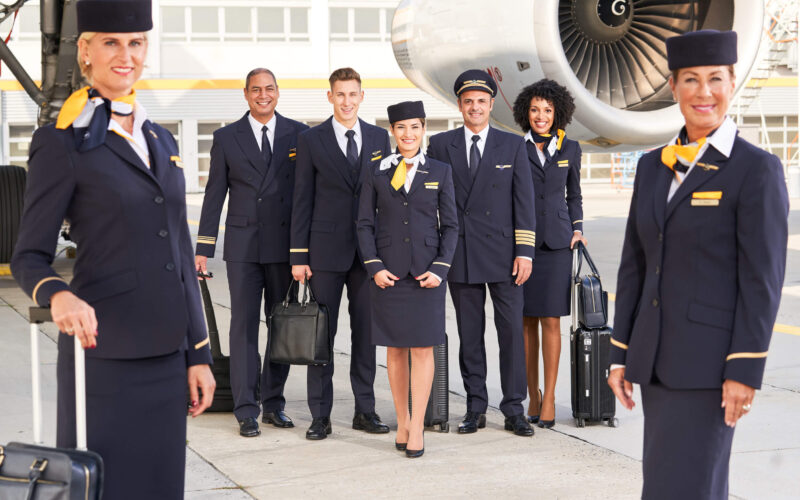Lufthansa (LHAB) (LHA) and union UFO have agreed on pay increases for around 19,000 cabin crew in Germany, with new starters getting a 17% raise.
Under the deal, basic monthly pay will be increased by €250 ($248) from 1 January 2023, and by an additional 2.5% from 1 July 2023.
Lufthansa (LHAB) (LHA) said the agreement, which also includes flexible part-time models, will help ensure its attractiveness as an employer.
“Our cabin personnel in the lower and mid-range salary groups will particularly benefit from the agreement we have reached,” commented Michael Niggemann, Chief Officer Human Resources and Labor Director of Deutsche Lufthansa AG. “And the flexible new work hours models offer prospects, perspectives and appealing working terms and conditions that are closely aligned to the needs of our cabin personnel.”
The new collective pay agreement means starting salaries for cabin personnel will be increased by over 17%, while cabin personnel at the highest salary grade will receive a pay increase of about 9% in their basic monthly pay.
What about other Lufthansa employees?
Employees across the Lufthansa Group in Germany have been pushing for higher pay and better conditions in 2022, given ongoing staff shortages across the aviation industry. Ground crew and staff at the main Lufthansa (LHAB) (LHA) brand and its Eurowings low-cost brand have carried out strikes to put pressure on management to agree better deals.
The airline announced in August 2022 that it had agreed “significant” pay increases for 20,000 ground staff, with check-in employees for example, set to receive a pay increase of between 13.6-18.4%.
Negotiations with pilots’ union VC are ongoing, but the two sides agreed a no-strike deal after management said it would offer pay increases during the period to July 2023.
At low-cost carrier Eurowings, three days of strikes in October 2022 cost the airline €30 million ($29.8 million). Lufthansa Group chief executive Carsten Spohr told analysts on October 27, 2022 that Eurowings had made a “fair offer” and eased some working conditions but improving the offer further would endanger the low-cost business model.
“And that’s why they have not given in and that’s indeed why they were forced to reduce the size of the German fleet by five aircraft due to additional cost,” Spohr said.

